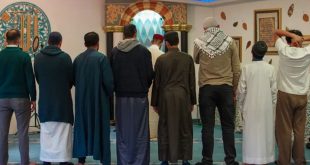The author argues that, while generally ulamas, or religious teachers, had to support state ideologies, they sometimes succeeded in “capturing” the state by influencing policies in their favor.
The Suharto (1966–98) government of Indonesia and the Mahathir (1981–2003) government of Malaysia both launched Islamization programs, upgrading and creating religious institutions. The author argues that, while generally ulamas, or religious teachers, had to support state ideologies, they sometimes succeeded in “capturing” the state by influencing policies in their favor. The author builds his argument on strong fieldwork data, especially interviews, and he engages in critical discussion of comparative politics paradigms and the concept of capture.
About the Author
Norshahril Saat is Fellow at the ISEAS-Yusof Ishak Institute. He received his PhD in International, Political and Strategic Studies from the Australian National University (ANU). He has published extensively on Islamic authority in Southeast Asia.
Table of Contents
- Introduction
- Official Ulama in Indonesia and Malaysia: Emergence, perception and authority
- The rise in piety and the roots of state co-optation
- MUI in the post-New Order: A capture in progress
- Malaysian muftis and official ulama: The state captured?
6. Conclusion: The future of official ulama and state capture
Bibliographic Information
Title: The State, Ulama and Islam in Indonesia and Malaysia
Author: Norshahril Saat
Publisher: Amsterdam University Press
Language: English
Length: 256 pages
ISBN: 9789048532902
Pub. Date: 12 December 2017
 Ijtihad Network Being Wise and Faithful Muslim in the Contemporary World
Ijtihad Network Being Wise and Faithful Muslim in the Contemporary World
